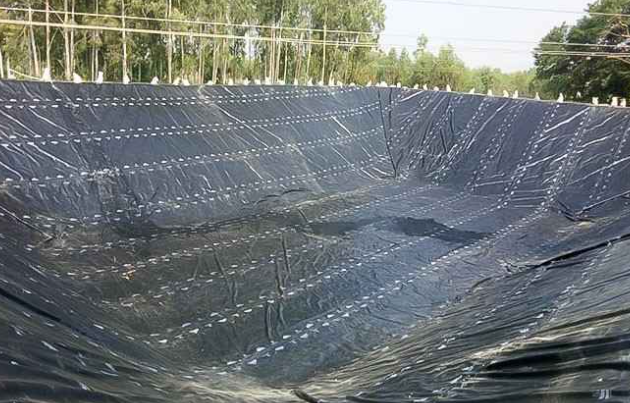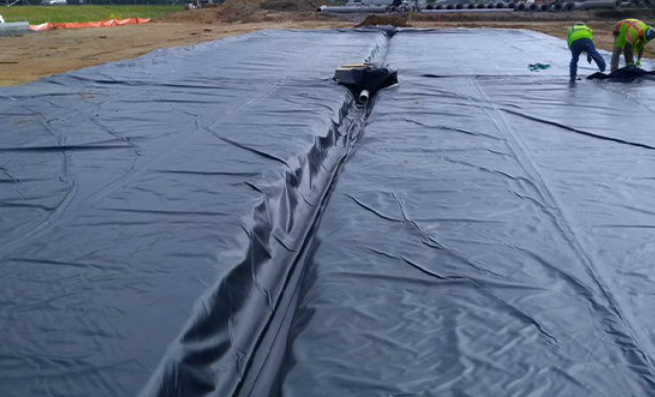- Understanding the Role of Geomembrane Liners in Waste Management
- Innovations in Geomembrane Liners for Water Management
- Geomembrane Liners: A Comprehensive Guide
- The Future of Geomembrane Liners in Civil Engineering
- Geomembrane Liners: Enhancing Landfill Stability
Manager:
WhatsApp:+86 177 0135 2670
Tel:+86 177 0135 2670
Email:marketing@okorder.com
Address:3rd Floor, No.2 Building, No.1 Sanlihe Road
How to choose the thickness of composite geomembrane
The thickness selection of composite geomembrane is a key and complex engineering problem, which involves comprehensive consideration of multiple factors, including soil conditions, engineering purposes, anti-seepage requirements and economic costs. In practical applications, reasonable thickness selection can not only ensure the quality and stability of the project, but also effectively control costs and improve economic benefits. First of all, soil conditions are one of the important factors determining the thickness of composite geomembranes. Different soils have different physical and chemical properties, which have different effects on the permeability, durability and stability of geomembranes. In soft foundation areas, due to the finer soil particles and higher water content, the isolation and anti-seepage performance of geomembranes are required to be higher, so thicker geomembranes need to be selected to enhance their anti-permeability and stability. In hard foundation areas, the soil structure is relatively compact, and the requirements for geomembranes are relatively low, so thinner geomembranes can be appropriately selected.

Secondly, engineering purposes are also a key factor in determining the thickness of geomembranes. Different engineering purposes have different performance requirements for geomembranes. For example, geomembranes used as anti-seepage measures need to have higher anti-permeability and durability, so thicker materials need to be selected. In some temporary projects or low-requirement projects, thinner geomembranes can be selected to reduce costs. In addition, anti-seepage requirements are also an important basis for selecting geomembrane thickness. For anti-seepage projects with high requirements, such as reservoirs and landfills, thicker geomembranes need to be selected to ensure their good anti-seepage performance. These projects have high requirements for the durability, anti-aging performance and tensile strength of geomembranes, so thicker materials are needed to meet these requirements.
However, it should be noted that excessively increasing the thickness of geomembranes does not necessarily improve their performance. On the contrary, excessively thick geomembranes may increase project costs, while also increasing construction difficulty and extending construction periods. Therefore, when selecting the thickness of geomembranes, comprehensive considerations should be made based on specific project requirements and economic costs to seek the best balance point.
In addition to the above factors, the production process and quality of composite geomembranes are also important factors affecting the selection of thickness. High-quality geomembrane materials have higher density and uniformity, and can provide better anti-seepage effects and stability. Therefore, when selecting geomembranes, attention should be paid to information on their production process, raw material quality and production standards to ensure that the selected materials meet the requirements of the project. In actual engineering, the thickness of the composite geomembrane also needs to consider other factors such as the topography and soil quality of the landfill. For example, in mountainous or hilly areas, due to the large undulations in the terrain, the tensile strength and wear resistance of the geomembrane are required to be higher, so the thickness of the geomembrane needs to be appropriately increased. In plain areas, due to the relatively flat terrain, the requirements for geomembranes are relatively low, and thinner geomembranes can be appropriately selected.

In summary, the thickness selection of the composite geomembrane is a decision-making process that comprehensively considers multiple factors. In the selection process, factors such as soil conditions, engineering purposes, anti-seepage requirements, and economic costs should be fully considered, and scientific and reasonable choices should be made according to specific engineering needs. Through reasonable thickness selection, the quality and stability of the project can be ensured, and economic and social benefits can be improved.
- Previous:Asphalt fiberglass geogrid construction plan
- Next:no more
-
2024-06-13Geomembrane is not plastic cloth






